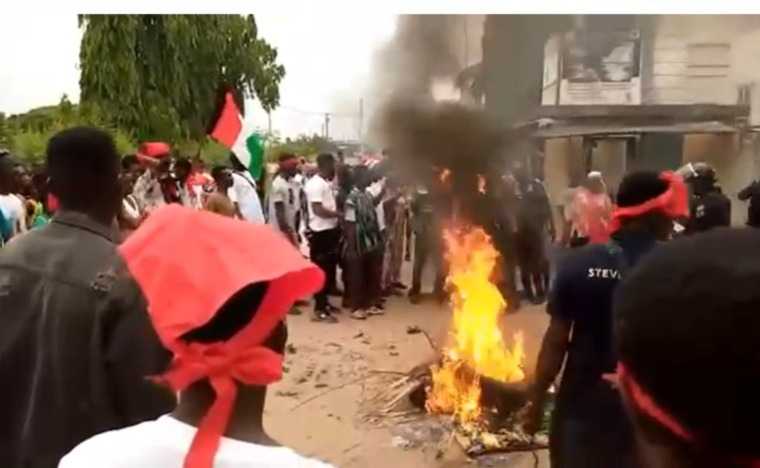The Ghana Center for Democratic Development (CDD-Ghana) has strongly condemned the wave of post-election violence that followed the December 7, 2024, general elections, which saw the National Democratic Congress (NDC) assume power from the New Patriotic Party (NPP). These acts of hooliganism and vandalism, including the raiding and occupation of public facilities, forced evictions of public officials from their residences and offices, and other disruptive behaviors, have raised serious concerns about the stability and future of Ghana’s democracy. While acknowledging that similar incidents have marred previous transitions of power in the Fourth Republic, CDD-Ghana emphasizes that this recurring pattern should not be normalized or excused. The Center argues that allowing such behavior to continue unchecked poses a grave threat to the country’s political culture and undermines efforts to mitigate the negative effects of winner-take-all politics.
CDD-Ghana’s primary concern is the potential for this post-election violence to become entrenched in Ghana’s political landscape. The organization warns that if left unaddressed, these acts of partisan hooliganism will erode public trust in democratic processes and destabilize the nation. The Center believes that the consistent failure to hold perpetrators accountable emboldens them, perpetuating a cycle of violence with each election cycle. This recurring pattern not only threatens peace and stability but also undermines the progress Ghana has made in consolidating its democracy since 1992. The CDD-Ghana, therefore, calls for immediate and decisive action to break this dangerous cycle and ensure that future elections and transitions are free from violence and intimidation.
The Center urges the newly elected government of President John Dramani Mahama to prioritize addressing this issue as part of his pledge to “Reset Governance and Politics in Ghana.” CDD-Ghana specifically calls on the government to empower law enforcement agencies, particularly the Ghana Police Service, to investigate and prosecute those responsible for the post-election violence. They stress the importance of the government refraining from any actions that might obstruct or hinder law enforcement’s ability to carry out its duties effectively and impartially. This includes ensuring that investigations are conducted without political interference and that those found guilty are brought to justice regardless of their political affiliations.
Drawing parallels to the successful efforts to combat political vigilantism through the Vigilantism and Related Offences Act of 2019, CDD-Ghana proposes similar legislative measures to address post-election violence. The Center recommends enacting legislation that imposes stricter penalties for individuals involved in such acts, mirroring the robust measures implemented against political vigilantism. They argue that stronger deterrents are necessary to discourage future occurrences and demonstrate the government’s commitment to upholding the rule of law. By taking decisive action and implementing impactful legislation, the government can send a clear message that such behavior will not be tolerated.
Furthermore, CDD-Ghana emphasizes the importance of incorporating strategies to prevent and manage post-election violence into the transition process itself. They suggest that future transition teams should prioritize addressing this issue as a critical component of their mandate. This would involve developing clear protocols and mechanisms for managing potential conflicts, ensuring the security of public facilities and officials, and promoting peaceful transitions of power.
In conclusion, CDD-Ghana’s condemnation of the post-election violence serves as a stark reminder of the fragility of democratic institutions and the importance of upholding the rule of law. The Center’s call for decisive action from the government, coupled with legislative reforms and proactive measures during transitions, offers a roadmap for addressing this recurring problem. By implementing these recommendations, Ghana can strengthen its democracy, ensure peaceful transitions of power, and safeguard the progress made in its journey towards a stable and prosperous future. The orderly conduct of the December 7, 2024 General Elections, despite the subsequent violence, reflects the progress made in Ghana’s democratic journey. However, sustained efforts are crucial to ensure that future elections and their aftermath are free from violence and threats to life and property.














